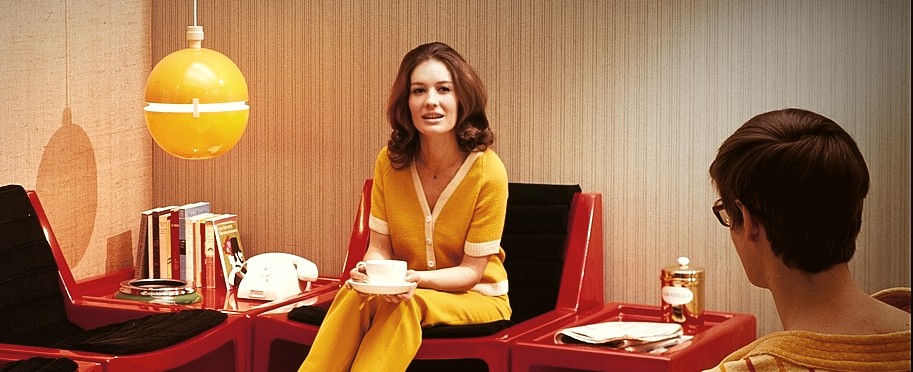Berättat av Freddy Fashridjal
Man. Född 4 maj 1989. Data Analytics. Solna.
Om du tänker på hur du lever i dag, vad tycker du fungerar bra och vad skulle du vilja förändra?
Today, I feel very blessed to be living in a country like Sweden that values nature, equality and work-life balance. I love having the luxury of taking long walks through natural reserves, doing many different activities after work, having a feeling of mutual respect among colleagues, and the many fikas! I feel at peace, acknowledged, and not questioning my place in any such hierarchy.
I also value the current technological advancements of video calling through Whatsapp and google meets so I can stay connected with my family in Indonesia. I can spend the mornings having quality discussions with my Dad, catching up with my brother, and playing online games with my nephew.
However, I miss being in physical presence with them. Therefore, for something I wish to have is more frequent meetings with my family, whether in Sweden, Indonesia or anywhere else in the world!
När du funderar på hur livet i Sverige, Norden och världen ser ut i dag, vad tycker du fungerar bra och vad skulle du vilja förändra?
One word I would use to describe the current life in Sweden and the Nordic countries is peaceful. There is an abundance of green spaces for people to enjoy long walks in nature, extensive public transport system that brings mobility, and such a supportive environment for families. There is a culture of respecting individuality, having work-life balance, and promoting equality. Especially for Sweden, I really am embracing the concept of fika! I also see that the region has become more open to the world, with many people from different countries having the opportunity to settle down and enjoy life.
For the world itself, I see that we are becoming more connected than ever before! Traveling has become more affordable for most countries compared to the past decades, technology enables more exposure to different cultures, and more diversity can be seen in several countries.
However, we still can see much inequality between different regions, there is still conflict between countries, and the global economic system is full of mystery. There are still a lot of countries with an economic system that creates unnecessary struggle for people to meet basic needs, giving them less opportunities to follow their actual aspirations. The Nordic countries have given a good example of resolving such issues, having a system that values equality and promotes innovation.
Yet, there is still much cultural enrichment that can be done! Because of having daily struggles, people from developing countries have built a culture that values community. They tend to show a sense of openness to sharing and helping one another. However, this communal culture can tend to put pressure on people to follow the perceived life goals. Meanwhile, the Nordics appreciate individuality and respect one’s decision to do whatever they please as long as no one comes at expense. The downside for this is people can be less connected and exposed to new ideas of living.
Therefore, I believe that the Nordics and the rest of the world should always learn from each other. We learn how to appreciate individuality yet not forget that we are interdependent of each other as social beings.
Hur vill du att Sverige, Norden och världen ser ut om 30 år? Och hur vill du att ditt eget liv eller efterkommande generationers ser ut?
In 30 years, we would be in the middle of the 21st century. Reflecting from the middle of the previous century, there has been much change on a both local and global scale.
The Asian nations began to emerge, countries like India, Indonesia, and Vietnam gained independence from their colonists. Japan recovered quickly from the second world war and started its rise to economic dominance.
More technologies have been introduced to our homes, such as television and radio. The film industry started to have more variety and even color. The automobile industry became more accessible and supported easy mobility.
From my perspective, what happened in the 1950s shows a political and economic rise in nations and technology that connects the world. If we were to repeat the same pattern, we shall see more countries reaching political and economic change which gives people more freedom and opportunities for stability.
The world would be more connected than ever before with new technological advancements. There might be a way to have holographic technology that enables people to physically interact with one another despite being in different countries. Such technology can also enable people to learn faster and embrace the idea of progressive change.
For Sweden and the Nordic countries, I hope it keeps valuing equality, appreciation for individuality and work-life balance. As many new people from around the world have settled down here, a cultural enrichment should be evident in this period of time. We would see the Nordic region as both peaceful yet vibrant. A place where people can enjoy walking around nature and meeting new people on sidewalk cafes. A place that is open for anyone who wishes to have this balanced life.
Hur vill och tror du att livet i Sverige, Norden och världen ser ut om 150 år?
One short simple sentence for the world in general: borderless. People will be able to travel, work and live wherever they want to be without having to worry about regulations or other boundaries.
Publicerat
22 mars 2023
Berättat av
Freddy Fashridjal
Licens
CC BY
Arkivkod
M17/00231
Berättelsens position
Se alla berättelser på kartaIf you see this after your page is loaded completely, leafletJS files are missing.
Gör som 991 andra – dela din berättelse!
Var med i det nordiska samtalet om framtiden. 991 personer har redan bidragit. Vad vill du? Hur ser du på åren vi har framför oss?

